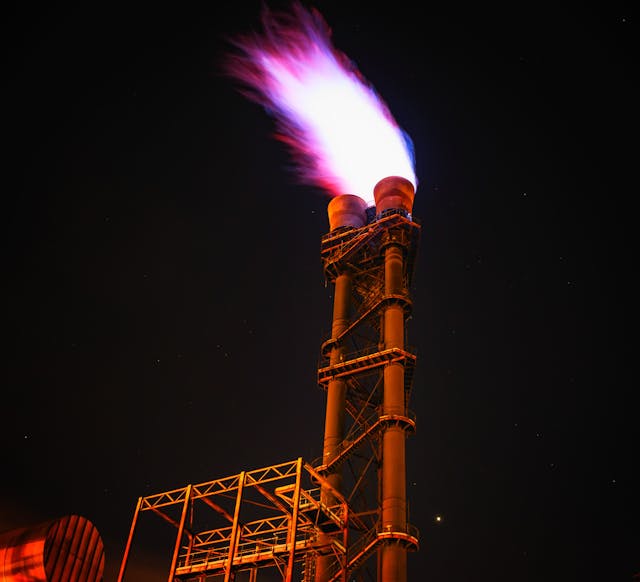You have likely seen headlines or overheard conversations about sustainability and environmental impact. These topics are becoming increasingly important, and the problem may hit closer to home than you realize. Aside from melting ice caps that may sound vague and far-off, air pollution caused by fossil fuels is a very real, and very dangerous, issue right here in the U.S. That’s why understanding the health implications of our energy choices is more critical than ever.
Fossil fuels such as coal and gas have long been the backbone of our energy infrastructure, but their use comes at a significant cost to public health. However, there is hope on the horizon with the rise of clean energy providers offering sustainable alternatives that benefit the planet and promote better health for all.
The Health Risks of Fossil Fuels
When we think about the health risks associated with fossil fuels, air pollution often comes to mind first. Burning coal and gas releases harmful pollutants into the air, including particulate matter, sulfur dioxide, nitrogen oxides, and volatile organic compounds. Researchers have linked these pollutants to respiratory illnesses such as asthma, bronchitis, and lung cancer.
But it’s not just the air we breathe that is affected. The extraction and processing of fossil fuels also causes water pollution, contaminates drinking water sources, and harms aquatic ecosystems. Chemicals used in hydraulic fracturing, or fracking, for example, have been found to seep into groundwater, posing serious health risks to nearby communities.
Furthermore, the combustion of fossil fuels is a significant contributor to climate change, with far-reaching consequences for public health. From extreme weather events to the spread of infectious diseases, the impacts of a warming planet are wide-ranging and often disproportionately affect vulnerable populations. Health and climate researchers have grown increasingly alarmed at the world’s dependency on fossil fuels, noting that it degrades public health further each year.
Health Impacts on Vulnerable Communities
Unfortunately, the burden of fossil fuel-related health risks falls disproportionately on low-income and minority communities. These communities are more likely to live near power plants and industrial facilities, exposing them to higher levels of pollution. Additionally, systemic inequalities in access to healthcare and other resources can exacerbate the health effects of environmental pollution.
According to research by both the U.S. Environmental Protection Agency (EPA) and the American Lung Association, communities of color are more likely to experience higher rates of asthma, cardiovascular disease, and other health problems linked to air pollution. According to an MIT study, in the U.S. alone nearly 200,000 deaths can be attributed to air pollution each year.
This intersectionality of environmental and social injustices highlights the urgent need for action to address both the health and equity implications of our energy systems. Both domestically and globally, the pollutants released from burning fossil fuels pose a grave threat to children’s health and future.
Transitioning to Clean Energy
The good news is that we have the technology and resources to transition away from fossil fuels toward cleaner, renewable energy sources. Solar, wind, hydro, and other forms of clean energy offer a sustainable alternative that reduces air and water pollution and helps mitigate climate change.
Renewable energy also has significant benefits for public health. By eliminating harmful emissions from fossil fuel combustion, clean energy can improve air quality and reduce the incidence of respiratory illnesses and other health problems. Additionally, transitioning to clean energy creates new job opportunities and stimulates economic growth, particularly in communities that have been historically marginalized by the fossil fuel industry.
The health of billions worldwide is at risk due to the climate crisis, highlighting the undeniable connection between health and the environment. The evidence is indisputable: Transitioning away from fossil fuels and embracing sustainable transportation, food, and energy options will lead to better health outcomes. This shift can reduce air pollution, promote healthier diets and eating habits, and encourage increased and safer physical activity.
The Role of Clean Energy Providers in Promoting Clean Energy
As a clean energy provider, Mpower Energy is at the forefront of the transition to a more sustainable future. By offering renewable energy options to consumers, Mpower Energy is helping to reduce reliance on fossil fuels and promote better health for communities across the country.
But the transition to clean energy requires more than just individual action; it requires collective efforts and systemic change. Governments must implement policies that support renewable energy development and phase out subsidies for fossil fuels. Communities need to come together to advocate for clean energy solutions and hold polluters accountable for their actions.
Acting for a Healthier Future
There are steps we can take individually to reduce our reliance on fossil fuels and support clean energy initiatives, like switching to a clean energy provider for our homes or businesses. By conserving energy, investing in renewable technologies, and advocating for sustainable policies, we can all play a part in creating a healthier, more sustainable future for future generations.
The health risks associated with fossil fuels are undeniable, but so too are the opportunities presented by clean energy alternatives. Switching to renewable energy and advocating for systemic change protects public health, promote environmental justice, and build a brighter future for all. Let’s work together to power our world with clean energy and ensure a healthier tomorrow for everyone.
